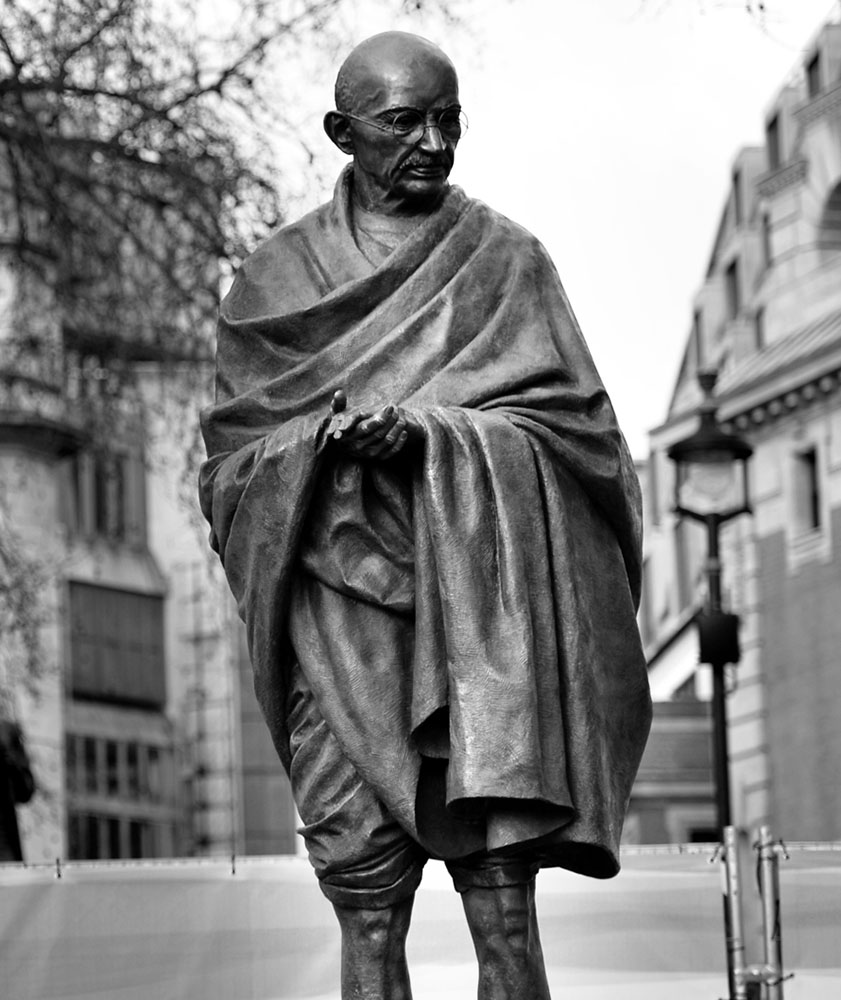As someone committed to the work of interreligious dialogue, I take it for granted that others walk their own valid paths to ultimate reality. But the church itself remains ambivalent to this now matter-of-fact truth. Despite decades of work on theologies of religious diversity, there is much in the taken for granted life of the church that assumes that Jesus is the only way to the divine. Having a written an entire book on this matter recently, I will not dive into the weeds of this complex topic. I want instead to ask not about the theologies but about the concrete practices that the church might and should adopt when we recognize that others walk by legitimate paths that are not our own.
Practices of Accompaniment
If other persons and communities are walking valid and life-giving paths that are not our own, we need not be indifferent to those paths. Life is lived together and not in solitary confinement. We work in the same institutions, we live in the same towns, and — in interfaith partnerships — we sleep in the same beds. Once the validity of other paths is acknowledged and we give up on the project of converting the other to our tradition, we can still accompany each other. What might such accompaniment look like? What are the practices of accompaniment. The answers are innumerable and wide open.
Accompaniment certainly carries the meaning of breaking bread together. Remember that nested in the word “accompaniment” is the word for bread (panem in Latin; pain in French). A companion is one who breaks bread with another. So, perhaps special priority has to be given to shared meals. Virtually every tradition prioritizes conviviality through feasting. Our own tradition is no exception.
Eating together, working together, making time for the other’s faith practices at the office, living together, traveling together — all of these are forms of accompaniment that in no way presumes converting or compelling the other to join us in our church.
Practices of Hospitality
Implicit in the work of accompaniment is also the work of hospitality. When the church enjoyed cultural privilege or simply was the established church, hospitality was understood as the work of hosting. We host those who are “other” — minority traditions, disestablished traditions or marginalized traditions, and make them feel welcomed in rather than peripheral to the social order. We give to the other what the other may not have and needs.
The tables are turning. Now, as mainline churches empty out and no longer enjoy (unearned) cultural privilege, it is long past time for them to practice the “hospitality of receiving.” Rather than sitting at the head of the table and presuming to set the banquet, we must do as Jesus did. We must stand prepared to be welcomed, taken in, and be hosted by persons and communities from other traditions. We form ties of friendship and neighborliness with synagogues, masjids, and First Nations communities. Such practices of receiving, of being the guest, are more than long overdue with respect to First Nations communities in particular. After all, it is we who are guests — or, truthfully, worse, interlopers — on their lands, not the other way around. The very act of presuming to play the host was itself an act of presumption and arrogance. Now, we must seek in our practices of hospitality to receive rather than presuming only to give.
Practices of Learning
At the heart of the hospitality of receiving is the work of learning rather than only and always teaching. Readers of my writings will know that I am profoundly inspired by Mohandas Gandhi who routinely chided Christian missionaries not for coming and giving to India, but rather for their wounding presumption that India has nothing to give them in return. For, Gandhi this was a profound violation. Listen to the Mahatma’s plea:
“You are here to find out the distress of the people of India and remove it. But I hope you are here also in a receptive mood, and if there is anything that India has to give, you will not stop your ears, you will not close your eyes, and steel your hearts, but open up your ears, eyes, and most of all your hearts to receive all that may be good in this land.… I therefore ask you to approach the problem before you with open heartedness and humility.”

Gandhi teaches us that when we presume to give or teach, but refuse to receive or learn, we demean and degrade the other. The hand in glove collaboration between missionaries and colonizers engaged in just such violations. Both parties assumed that other traditions and communities have little or nothing to teach us and took up the “civilizing mission.” We need not enumerate the barbarisms that were birthed as a result.
Even our planetary climate crisis is but one result of refusing to learn from the wisdom of Indigenous traditions that have long honored all beings as our kin. A whole host of First Nations voices are now wisely and lovingly trying to teach settler communities earth-honoring wisdom, wisdom that settlers routinely dismissed as primitive. Among these include Patty Krawec, Bishop Steven Charleston and Robin Wall Kimmerer, among many others. Now, the survival of the human species itself depends on whether we are able to refuse the arrogance of always seeking to teach but never stopping to listen and learn.
Practices of Solidarity
Finally, regardless of whether we are persons of faith or no faith, there are any number of practices of solidarity that we can adopt. Joining together to protest the clear-cutting of Old Growth Forests, advocating for the City of Victoria’s unhoused populations, urging politicians to surrender our addiction to fossil fuels — these are just some among many practices of solidarity, of making common cause across religious and secular divides. In such practices of solidarity, there is no need to convert or even educate the other. Often secular activists are more informed about the relevant issues than are religious voices. What is needed is a willingness to join in common cause, to put our resources and what institutional clout remains to churches, in the service of those who seek to build a more just and loving world.
Practices of Spirituality
But practices of solidarity can also be carried out in a spirit of inquiry, humility and collaboration. Activists of all stripes are realizing that practices of justice-seeking activism cannot be long sustained apart from spiritual and contemplative resources. The church can join with a host of religious and spiritual traditions who have extensive resources for cultivating spiritual disciplines than deepen our capacities to stay in the fight, extend compassion for our enemies, and generate loving-kindness not just for our human kin, but our animal and plant kin as well.
In all these practices of accompaniment, hospitality, learning, and solidarity, the church has at least as much to receive as we have to give. And given the harms that we have inflicted on others when we sought to give without receiving, perhaps now, in this late and darkening hour, perhaps all our practices are best infused with a loving and humble disposition of open-hearted receiving.




